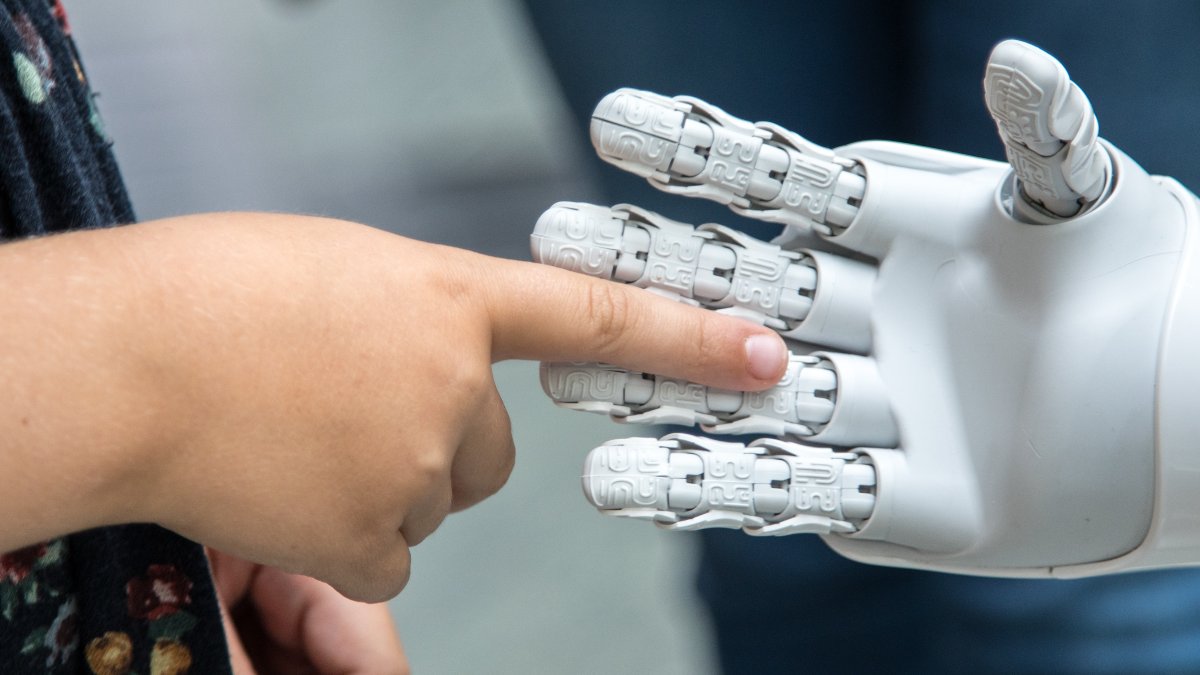
Which Human Needs Should Be Fulfilled Before We Welcome AI Into Workspaces?
Research highlights three ways in which AI makes us feel threatened, and how to buffer against them.

By Mark Travers, Ph.D. | September 12, 2023
A recent article published in Telematics and Informatics brings to light a critical discovery: the extent to which individuals satisfy their fundamental psychological needs of autonomy (control over one's actions), competence (feeling effective in tasks), and relatedness (connection with others) plays a substantial role in shaping their opinions regarding artificial intelligence.
The study employed the framework of Self-Determination Theory, which suggests that environments that support the fulfillment of these basic psychological needs can lead to greater intrinsic motivation, well-being and optimal functioning. Additionally, the findings of the research establish that fulfilling these needs can substantially promote favorable attitudes toward AI, with competence and relatedness proving particularly influential.
"In our study, we discovered that our desires to feel capable, connected and in control influence our opinions about artificial intelligence," says Jenna Bergdahl, a researcher on the UrbanAI project at Tampere University in Finland. "These feelings, which are also known as basic psychological needs, can shape whether we end up liking or disliking AI."
In order to understand the connection between psychological needs and attitude towards AI, the researchers conducted two studies examining attitudes towards AI based on self-determination theory and basic psychological needs (autonomy, competence, and relatedness).
- In the first study across six European countries, they found that lower satisfaction of these needs was linked to more negative AI attitudes, while competence and relatedness fostered positive attitudes. For Finns, autonomy also played a significant role in positive AI attitudes.
- In the second study with Finnish participants, they observed that increasing autonomy and relatedness satisfaction led to more positive AI attitudes and less negativity.
- Additionally, they found consistent effects of autonomy, competence and relatedness on reducing negativity towards AI, with individuals perceiving higher autonomy and competence displaying both less negativity and more positivity towards AI.
The study emphasizes that basic psychological needs, especially competence and relatedness, significantly influence positive attitudes towards artificial intelligence in six European countries. While competence and relatedness consistently affect positive AI attitudes, the impact of autonomy varies, especially in Finland, highlighting the unique nature of AI attitudes compared to traditional technology acceptance.
This research thus addresses a gap by exploring the connection between psychological needs and AI attitudes, stressing the importance of recognizing our innate "humanness" and feeling like worthy, able and autonomous beings in the face of an intelligence that rivals, and possibly supersedes, our own.
The study's key takeaways can be condensed into the following points:
- People who feel capable, connected, and in control tend to have more positive attitudes toward AI. Specifically, those who believe they can use technology on their own terms, like Finnish respondents, tend to view AI more favorably.
- To harness AI's potential effectively, it is crucial to acknowledge the diverse perspectives and concerns people have about this technology.
- By ensuring that individuals' basic psychological needs are met when they interact with AI, we can improve acceptance and use of these technologies in more flexible and productive ways.
When asked how organizations that are implementing AI technologies within their operations might enhance employee engagement, satisfaction and acceptance of AI-driven changes in the workplace, the author advised the following two-step approach:
- Build employees' confidence
- Create an environment of relatedness among AI users
"Overall, organizations can enhance AI engagement and acceptance by aligning AI implementation strategies with the principles of self-determination theory. By addressing employees' psychological needs for competence, autonomy, and relatedness, organizations can foster a positive and supportive environment for embracing AI-driven changes," concludes the author.
A full interview with researcher Jenna Bergdahl discussing her research can be found here: Research reveals an intuitive solution to quell AI panic
